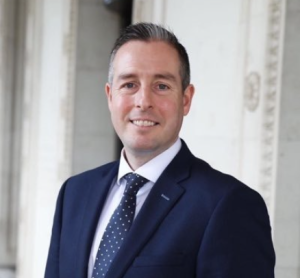The Commissioner is calling for urgent reform and investment in Specialist Provisions in Mainstream Schools, highlighting opportunities to strengthen planning, placement, and support.
NICCY’s report ‘Every Child’s Right to Inclusive Education’, launched on Monday 21st July, highlights a 200% increase in the number of pupils enrolled in specialist provisions over a five-year period since 2018.
‘When children are appropriately placed, and support is available, specialist provisions can work well’ said Commissioner Chris Quinn.
The report, which draws on direct visits to schools and engagement with educators, parents, and advocacy organisations, has identified:
- Unmet needs due to poor access to educational psychology, health therapies, and behaviour support;
- Gaps in provision, including in early years, Irish medium Education (IME) and post-primary education;
- Training and workforce pressures, including for classroom assistants working with children with complex needs;
- Educators are passionate about fostering inclusion but need a clear inclusion policy framework;
- Need to strengthen communications by the Education Authority, which could help provide clearer guidance and greater reassurance for families.
Despite challenges, the report highlights examples of good practice and the potential of SPiMS to offer high-quality, flexible education close to home – if placements are appropriate and fully supported.
With all this in mind NICCY is calling for:
- A comprehensive inclusive education policy;
- Investment in early intervention, workforce development, and localised, multi-disciplinary health and education support teams;
- Appropriate, high quality and timely transition pathways;
- Robust monitoring, including input from children and families;
- And clearer communication and guidance for parents navigating the SEND system.
Commissioner Chris Quinn said: “Children with special educational needs have the right to an education that helps them thrive. The system must do better, and it must do so urgently.
“Children with special educational needs have a right to learn, to belong, and to be heard.
“This report shows that while there is good practice in some schools, too many children are still being placed in settings that are not equipped to meet their needs.
“That is not inclusion, and it is not acceptable. We need urgent action to ensure that every child’s rights are respected in every classroom.”
Read the full report here.



